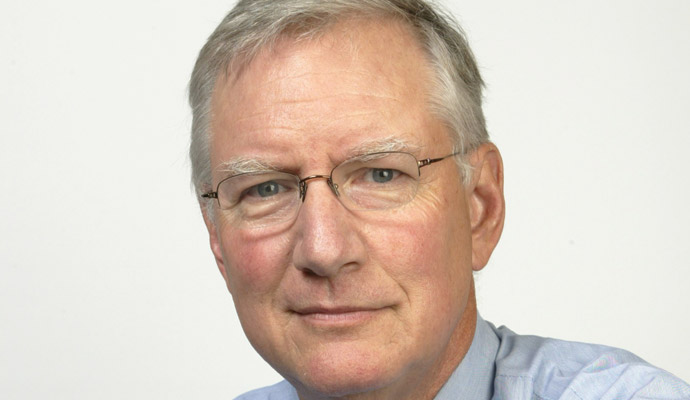What’s My Motivation? A Q&A with E. Tory Higgins
The secret to successful influence is the same as acting: Know where your character is coming from.
Are you driven by a nervous anxiety or spurred on by an upbeat vision of the future? Or perhaps, at different times, you have experienced both. In his recent book, Focus: Use Different Ways of Seeing the World for Success and Influence (co-written with Heidi Grant Halvorson), E. Tory Higgins, the Stanley Schachter Professor of Psychology at Columbia University, argues that one of two states tends to dominate the way we think: a promotion focus or a prevention focus. We need to be aware of these motivating forces, he says, if we’re to successfully influence employees, consumers, friends, spouses, and even ourselves.
FK: What do you mean by promotion and prevention focus?
ETH: The basic distinction is really to do with when you’re pursuing goals or making decisions. The promotion state is when you think of your goal as something to accomplish, something to aspire to; you think of what you’re trying to do as making gains in your life. Prevention is quite different. When you’re in prevention, you think of your goal as something that will allow you to have safety and security. You think of what you’re doing as something you ought to do rather than what you ideally want to do.
In promotion, you’re very optimistic. You tell yourself that things will work out, that things are going to be better. You have this kind of sunny, rose-colored-glasses way of looking at the world because it allows you to be eager, and that’s good for successful promotion. In prevention, you don’t want that at all because if you imagine some rosy future, that actually makes you less vigilant. The way you’re successful at prevention is to be kind of conditional and say to yourself, “If I’m not careful enough, I might fail. If I don’t work hard enough, I might fail.” It’s called defensive pessimism, and it’s very effective.
In a company, for instance, people’s focus often varies depending on their role. Top executives tend to be more promotion, and middle managers tend to be more prevention. But your focus can also change. The financial crisis and deep recession clearly pushed some people into prevention. [The events of] 9/11 and the ongoing threat of terrorism have also clearly contributed to this. Generally speaking, we have more prevention among Americans—business leaders included—than we had 50 years ago.
FK: Even so, your book suggests that America rewards promotion-style attitudes. Could you talk about the differences you found between cultures?
ETH: What we do know empirically is that in America, in Italy, in Spain, there are more predominantly promotion individuals, whereas in places like Japan and Korea, there are more individuals who are more predominantly prevention. What we guessed is that this has something to do with political-social-environmental-geographic conditions. Japan, for example, is a very small island. If you go back thousands of years it didn’t have a lot of resources that made life easy. We would guess that it’s to an advantage in that situation to emphasize that what you need to concentrate on is to do what’s necessary in order to be safe and secure.
The United States is a huge country, full of resources. In addition, there’s a lot of self-selection. The people who came to America wanted a better life and were willing to take a chance, willing to leave what they had in the hopes of something better.
FK: That sounds like the American dream.
ETH: It is the American dream. The promotion system is related to thinking about your life goals as ideals, as things that you hope for, aspire to, dream for. And so from that point of view, America is naturally more promotion, though as I mentioned, Americans are somewhat more prevention now than they have been in the past.
FK: How can a CEO or manager draw on these nuances?
ETH: Promotion and prevention are really motivational states, not just personalities. If you want innovation and creativity—and, therefore, want your workers to be in promotion—then it is a good idea to use bonuses as an incentive, because bonuses are about gains. A bonus by definition says, “If you do this and this, then you will gain some extra money, you will get a better financial situation.”
But you don’t want to talk about bonuses if what you care about is safety and reliability. It’s a mistake to tell people, “If you make the plane safer and more reliable, you’ll get a bonus.” That is a terrible thing to do because the bonus puts them in promotion and what you want instead is to put them in prevention. So what you should do instead is say, “We have set aside this money for you—it’s yours. But if you do not make sure that this product is safe, if you do not make sure that it’s reliable, you will lose that money.” Now the message is what they have to do in order not to lose the money. That’s a prevention message and that will help them to care more about safety and security.
FK: Getting back to the economy, do you think that if things get better, Americans may gradually shift toward being more promotion-focused again?
ETH: I think there’s a disadvantage when one focus dominates. It’s not a good thing if there’s so much prevention that there is no promotion working with it. This was certainly true in 2008 and 2009, where even when companies were making profits, they weren’t investing; they were just sitting on them. It’s still the case that companies have trillions of dollars that they’re not investing.
Long-term success comes when there are individuals at the top of the company who have both promotion and prevention. It’s that combination that is the healthiest over time.





